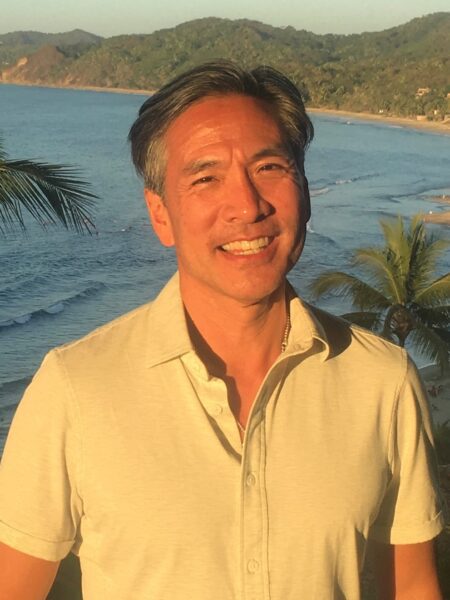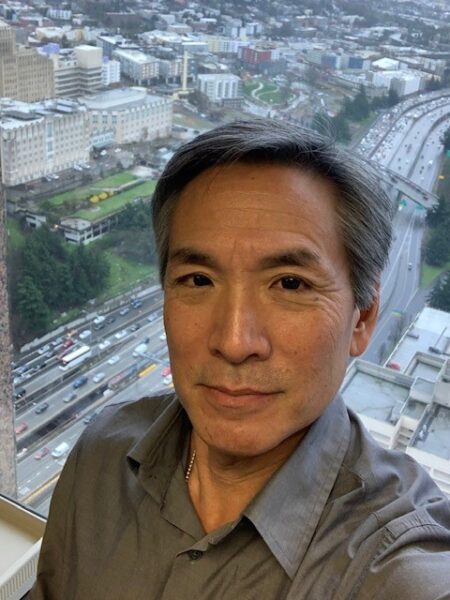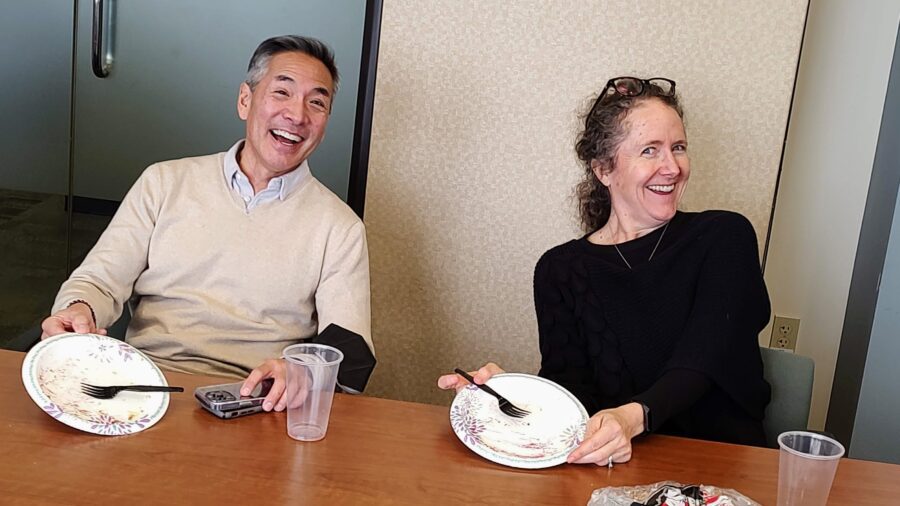
What is your role at Seattle Human Services?
I work in the Aging and Disability Services (ADS) division. My role, as I see it, is divided into three functions:
- Manager for our Health Integration Team. Our team consists of a supervisor, Karen Heeney, who oversees our skilled case managers/social workers in four program areas: PEARLS (Program to Encourage Active Rewarding Lives), Elder Abuse Case Management, Discretionary Case Management, and our Mobile Integrated Health (in partnership with Seattle Fire Department), also known as our Health One Team.
- Liaison to Public Health—Seattle & King County, including administrator of our Interlocal Agreement with King County and oversight of our contract for services.
- Advisor and representative for policy activities related to wellness, physical health, and behavioral health for the City. This includes working with City and department leaders, King County staff, and community organizations to ensure all people living in Seattle have optimal health outcomes and eliminating health disparities.
How has your job changed in recent years?
My job has changed in two main ways. There is a growing focus on:
- Helping the City understand and determine its role in relationship to the behavioral health needs of our community—this includes both the identification of and interventions for people struggling with mental health and substance use disorders.
- Responding to the COVID-19 pandemic—both the immediate issues (access to information, vaccines, and care) and the encompassing need highlighted by the pandemic—health equity—particularly among communities of color and the LGBTQI community.
What do you love about your job?
I love the variety in my job that allows me, day-to-day, to work with my team, community partners, City and King County colleagues, and people who have lived experience or are living experience related to health access and equity. Every day has me in different settings with different people trying to solve issues at both the systems level and the client/patient level.
How do you contribute to HSD’s overarching goals related to racial equity?
Racial equity and health equity are intrinsically tied. When different racial and ethnic groups in our city experience poorer health outcomes at 2 to 10 times the rate of their white neighbors, equity does not yet exist. HSD’s commitment to promoting public health is core to our goal of having a more racially-just city. Whether it’s our work to promote healthy activities for people of all ages and abilities, provide access to healthy foods, or ensure the provision of culturally appropriate health care, racial and health equity is at the center of our intentions.
What motivates you or keeps you going?
I have lived in Seattle my entire life. While I do admit to becoming less tolerant of our grey and rainy days, my heart and soul are firmly embedded here. This is particularly true of southeast Seattle, where I grew up and have lived for the past 30 years. I have seen Seattle evolve, change, and morph in so many ways—oftentimes to my joy, sometimes to my puzzlement, and occasionally to my sadness.
While I have great nostalgia for my childhood, adolescence, and young adulthood in Seattle, I have never wanted my city to be stagnant. Growth and transformation are positives if everyone is afforded the opportunity to grow and transform along with everything and everyone around them. Making this happen continues to motivate me.
What’s one piece of advice for HSD newcomers or recent graduates in your field?
I identify my field in three ways—as a social worker, as a health care administrator, and as a public administrator. I came to government late in my career. Government has a powerful and unique role in caring for those who have the greatest vulnerabilities and needs in our community. First, get a very good understanding of what government’s role is in your area of work or interest—what it’s able to do as well as its limitations. Having this understanding will provide a guide for where you want to go within government and at what level—city, county, state, or federal. Having this understanding will also help inform your decision as to where to start or go next in your career. I started working in community-based agencies, then in a large health care entity, and now at the City of Seattle. This has been my progression. There is no wrong or right order, nor a necessity to move from one to another—just an awareness of what is right for you currently and some vision of where you want to go next.


